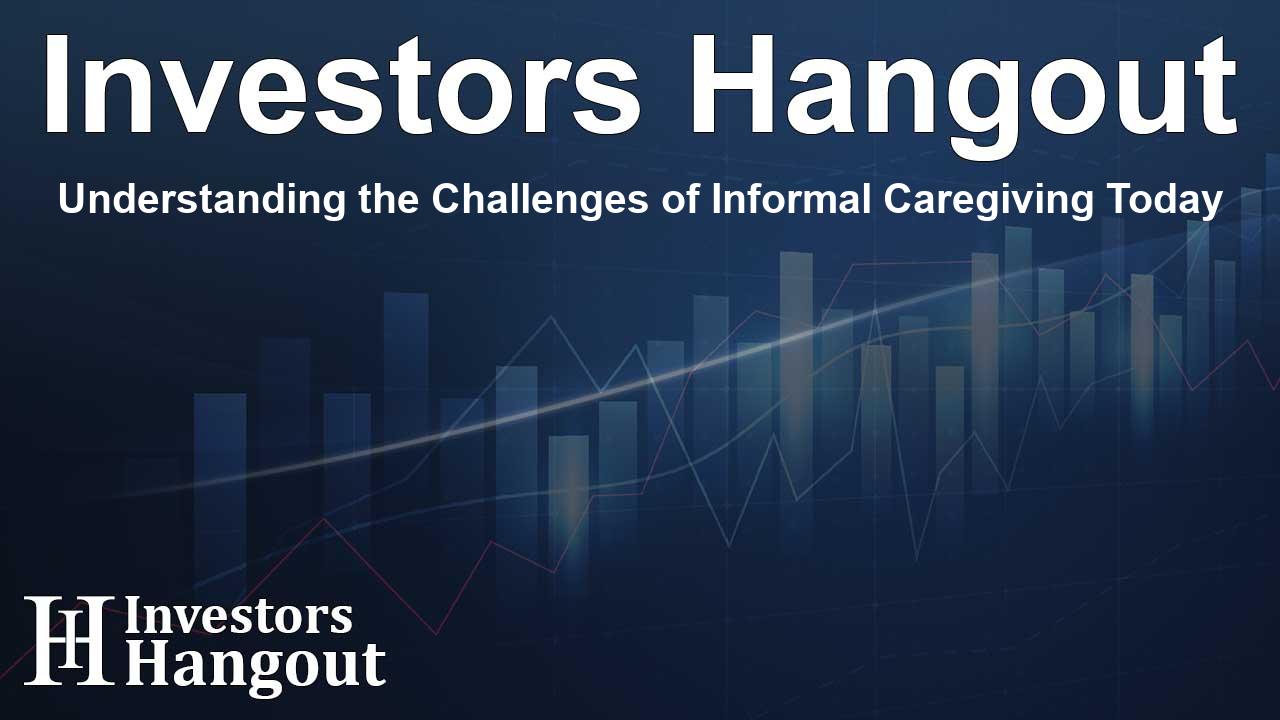Understanding the Challenges of Informal Caregiving Today

Understanding the Challenges of Informal Caregiving Today
Survey reveals caregivers face high stress levels amidst lack of information and support
As the aging population increases, many individuals are choosing to age in place, with crucial support from family members, partners, or close friends providing informal care. These informal caregivers, while offering a personal touch, often face significant stress due to competing responsibilities and insufficient resources or training.
Recognizing this vital role, OneAmerica Financial has embarked on a study alongside Hanover Research to delve into the hurdles these caregivers encounter daily. The survey aimed to explore how informal caregivers found their way into this essential work, their choices regarding compensation, and sources of information and support.
Interestingly, even though many people possess long-term care (LTC) insurance that could facilitate formal care, a significant number prefer the comfort of being cared for by someone they know in their own homes. The survey highlighted some common tasks undertaken by informal caregivers, including meal preparation (76%), cleaning (75%), emotional support (72%), transport assistance (63%), and health monitoring (62%).
“We often rely on our loved ones during times of need,” shared Dennis Martin, president of Individual Life and Financial Services. “The findings indicate a strong preference for informal caregiving; however, many of us are ill-prepared to deliver such care.”
The educational gap is glaring; most informal caregivers lack the necessary training. The survey revealed that over half (55%) of respondents learned to care through trial and error. Furthermore, a staggering 91% reported that they receive no payment for their efforts. This reality leads to significant repercussions for caregivers, with 56% expressing frustration about their circumstances. The most common issues cited include juggling caregiving responsibilities with other jobs (51%), feelings of emotional stress and burnout (47%), and a lack of free time for self-care (32%).
OneAmerica Financial is committed to supporting these often-overlooked caregivers through the Caregiver Consultant Benefit. If they hold a policy that includes this valuable benefit, caregivers have the opportunity to consult monthly with a trained professional who can guide them, assist in crafting a self-care plan, and suggest tools and resources to enhance their caregiving skills. The survey indicated that 88% of participants believe this benefit could significantly improve the quality of care for the person they tend to.
“We appreciate the incredible dedication caregivers exhibit, often without the necessary support,” noted Amy Chinn, vice president of Long-Term Care Claims & Risk Management. “Our Caregiver Consultant Benefit is designed to bridge this gap, offering essential resources, guidance, and empathy to aid caregivers throughout their journey. This survey highlights the need for such assistance, and we are proud to provide a benefit that genuinely impacts caregivers and their families.”
About OneAmerica Financial: OneAmerica Financial is a nationwide financial services organization dedicated to helping individuals achieve greater certainty and better moments in life. Serving clients for nearly 150 years, the OneAmerica Financial entities provide a variety of financial solutions, including life insurance, retirement planning, employee benefits, and long-term care. Their mission is to prioritize customer interests while ensuring long-term value and financial stability. To learn more, visit OneAmerica.com.
Products are issued and underwritten by The State Life Insurance Company, an entity of OneAmerica Financial based in Indianapolis, IN, specializing in Care Solutions. Services may vary by state, and certain practices may change over time. Hanover Research is not affiliated with OneAmerica Financial.
For media inquiries, please contact Zach Osowski.
Frequently Asked Questions
What is the main focus of the OneAmerica Financial survey?
The survey focuses on understanding the challenges informal caregivers face, including stress, lack of training, and resource limitations.
Who conducted the survey about informal caregiving?
The survey was conducted by OneAmerica Financial in collaboration with Hanover Research.
What are common tasks performed by informal caregivers?
Common tasks include meal preparation, household cleaning, providing companionship, transportation, and health monitoring.
How do caregivers feel about their roles according to the survey?
Many caregivers feel stressed and frustrated, primarily due to balancing caregiving with other responsibilities and lacking training.
How does OneAmerica Financial support informal caregivers?
They provide a Caregiver Consultant Benefit, which offers caregivers the chance to receive monthly guidance from trained consultants.
About The Author
Contact Addison Perry privately here. Or send an email with ATTN: Addison Perry as the subject to contact@investorshangout.com.
About Investors Hangout
Investors Hangout is a leading online stock forum for financial discussion and learning, offering a wide range of free tools and resources. It draws in traders of all levels, who exchange market knowledge, investigate trading tactics, and keep an eye on industry developments in real time. Featuring financial articles, stock message boards, quotes, charts, company profiles, and live news updates. Through cooperative learning and a wealth of informational resources, it helps users from novices creating their first portfolios to experts honing their techniques. Join Investors Hangout today: https://investorshangout.com/
The content of this article is based on factual, publicly available information and does not represent legal, financial, or investment advice. Investors Hangout does not offer financial advice, and the author is not a licensed financial advisor. Consult a qualified advisor before making any financial or investment decisions based on this article. This article should not be considered advice to purchase, sell, or hold any securities or other investments. If any of the material provided here is inaccurate, please contact us for corrections.
